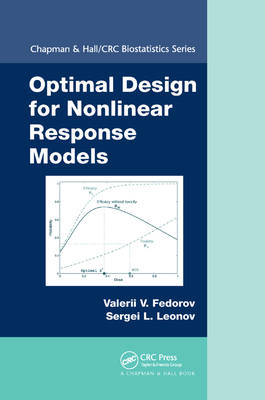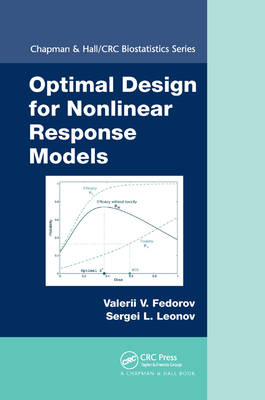
- Retrait gratuit dans votre magasin Club
- 7.000.000 titres dans notre catalogue
- Payer en toute sécurité
- Toujours un magasin près de chez vous
- Retrait gratuit dans votre magasin Club
- 7.000.0000 titres dans notre catalogue
- Payer en toute sécurité
- Toujours un magasin près de chez vous
Description
Optimal Design for Nonlinear Response Models discusses the theory and applications of model-based experimental design with a strong emphasis on biopharmaceutical studies. The book draws on the authors' many years of experience in academia and the pharmaceutical industry.
While the focus is on nonlinear models, the book begins with an explanation of the key ideas, using linear models as examples. Applying the linearization in the parameter space, it then covers nonlinear models and locally optimal designs as well as minimax, optimal on average, and Bayesian designs. The authors also discuss adaptive designs, focusing on procedures with non-informative stopping.
The common goals of experimental design--such as reducing costs, supporting efficient decision making, and gaining maximum information under various constraints--are often the same across diverse applied areas. Ethical and regulatory aspects play a much more prominent role in biological, medical, and pharmaceutical research. The authors address all of these issues through many examples in the book.
Spécifications
Parties prenantes
- Auteur(s) :
- Editeur:
Contenu
- Nombre de pages :
- 402
- Langue:
- Anglais
- Collection :
- Tome:
- n° 53
Caractéristiques
- EAN:
- 9780367379803
- Date de parution :
- 19-09-19
- Format:
- Livre broché
- Format numérique:
- Trade paperback (VS)
- Dimensions :
- 155 mm x 231 mm
- Poids :
- 612 g







